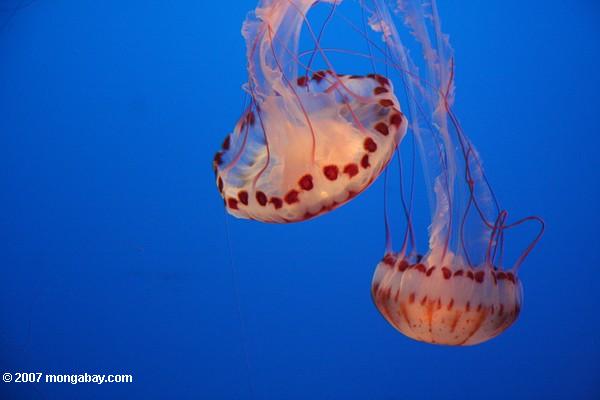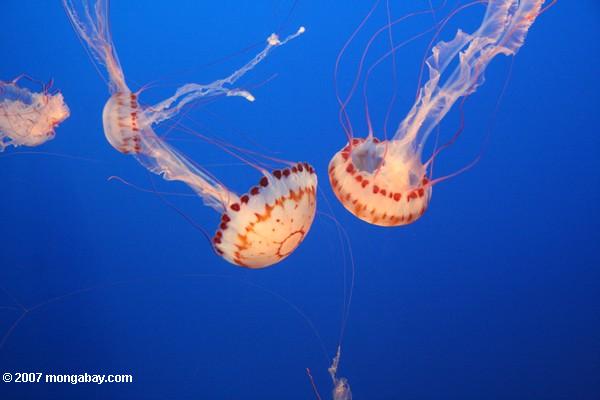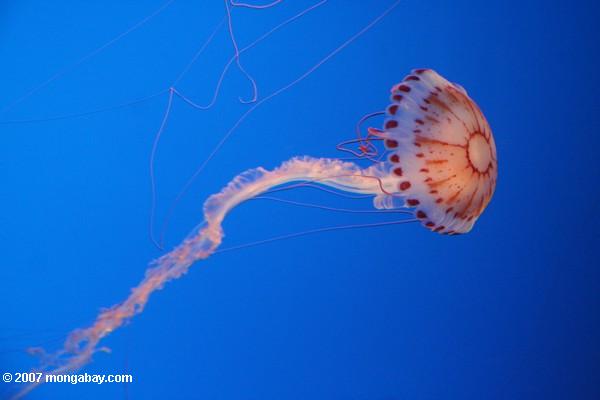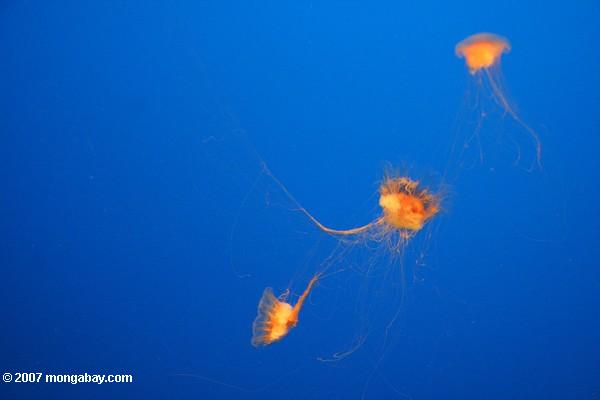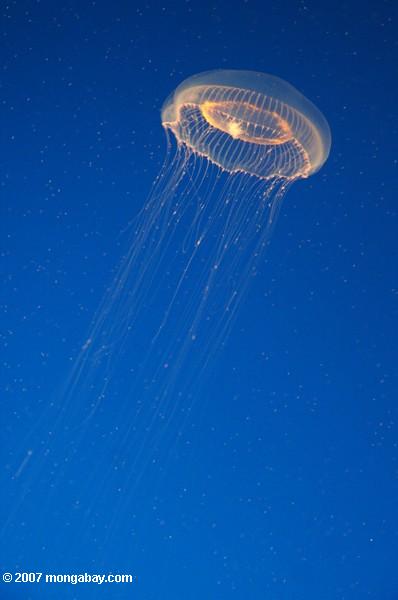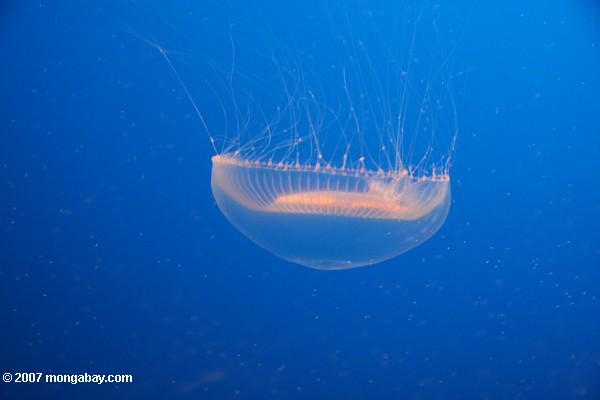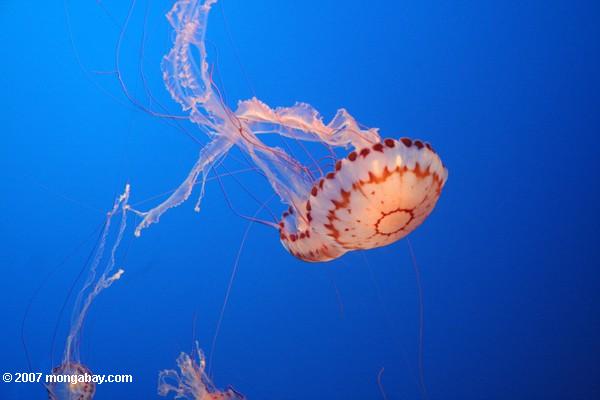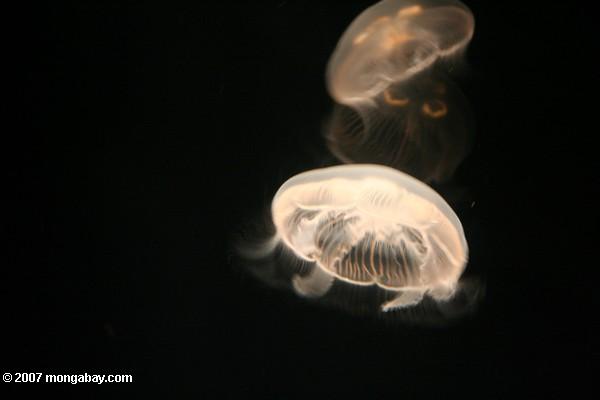Purple-striped jellyfish (Chrysaira colorata). All photos taken in captivity by Rhett A. Butler 2007-2008.
As the world’s oceans become degraded from overfishing, pollution, and absorption of atmospheric CO2, less complex organisms are beginning to dominate some marine ecosystems.
![]()
Sea nettle (Chrysaora quinquecirrha)
Purple-striped jellyfish (Chrysaira colorata)
Purple-striped jellyfish (Chrysaira colorata)
Lion’s mane jellies (Cyanea capillata)
Moon jellies
Purple-striped jellyfish (Chrysaira colorata)
Purple-striped jellyfish (Chrysaira colorata)
![]()
Sea nettle (Chrysaora quinquecirrha)
![]()
Sea nettle (Chrysaora quinquecirrha)
Moon jellies
Will jellyfish take over the world? June 16, 2009
It could be a plot of a (bad) science-fiction film: a man-made disaster creates spawns of millions upon millions of jellyfish which rapidly take over the ocean. Humans, starving for mahi-mahi and Chilean seabass, turn to jellyfish, which becomes the new tuna (after the tuna fishery has collapsed, of course). Fish sticks become jelly-sticks, and fish-and-chips becomes jelly-and-chips. The sci-fi film could end with the ominous image of a jellyfish evolving terrestrial limbs and pulling itself onto land—readying itself for a new conquest. While this scenario sounds ridiculous, all of it—except the last sentence, of course—could conceivably come to pass. Dr. Anthony Richardson calls this the ‘jellyfish joyride’ and it is already happening in parts of the ocean: diverse fish populations are being replaced by jellyfish.
